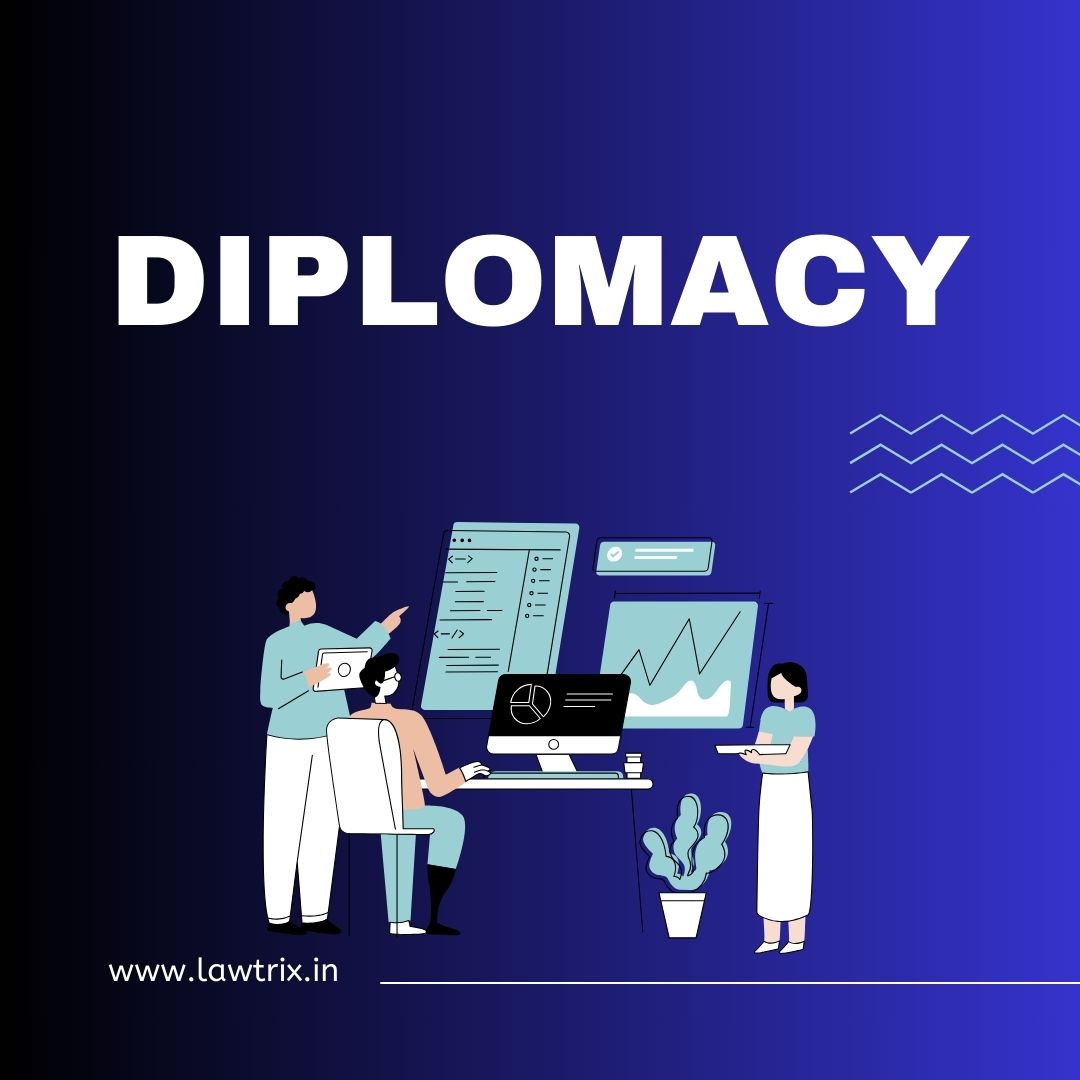


DIPLOMACY
is the practice of conducting negotiations, maintaining relations, and managing
conflicts between states, organizations, or individuals through peaceful means.
There are several types of diplomacy, each tailored to different contexts and
objectives.
Diplomacy
comprises spoken or written communication by representatives of state,
intergovernmental, or nongovernmental institutions intended to influence events
in the international system.
Diplomacy
is the main instrument of foreign policy which represents the broader goals and
strategies that guide a state's interactions with the rest of the world.
International treaties, agreements, alliances, and other manifestations of
international relations are usually the result of diplomatic negotiation and
processes. Diplomats may also help shape a state by advising government
officials.
Here
are some common types of diplomacy:
Bilateral Diplomacy:
Bilateral
diplomacy involves interactions between two countries. It focuses on addressing
issues of mutual interest, such as trade agreements, security cooperation, and
cultural exchanges. Bilateral diplomacy allows states to build closer
relationships and resolve specific issues directly with each other.
Multilateral Diplomacy:
Multilateral
diplomacy involves negotiations and cooperation among three or more countries
or international organizations. It often takes place within the framework of
international forums, such as the United Nations (UN), regional organizations,
or specialized agencies. Multilateral diplomacy addresses global challenges
that require collective action, such as climate change, peacekeeping, and human
rights.
Track I Diplomacy:
Track
I diplomacy refers to official government-to-government negotiations conducted
by high-level officials, diplomats, or heads of state. It involves formal
discussions, treaties, and agreements aimed at resolving conflicts, advancing
common interests, or addressing international issues. Track I diplomacy is
often characterized by formal protocols and diplomatic etiquette.
Track II Diplomacy:
Track
II diplomacy involves unofficial, non-governmental efforts to facilitate
dialogue, build trust, and promote conflict resolution between parties in
conflict. It typically involves academics, experts, civil society
organizations, and informal mediators who engage in dialogue,
confidence-building measures, and problem-solving workshops. Track II diplomacy
complements formal negotiations by providing informal channels for
communication and building relationships.
Public Diplomacy:
Public
diplomacy focuses on shaping public perceptions, attitudes, and opinions in
foreign countries to advance a country's interests, values, and policies. It
involves cultural exchanges, educational programs, media outreach, and
strategic communication efforts aimed at building goodwill and fostering
understanding between peoples. Public diplomacy enhances a country's soft power
and influence in the international community.
Economic Diplomacy:
Economic
diplomacy involves the use of economic tools and negotiations to achieve
diplomatic objectives and promote national interests. It includes trade
negotiations, investment promotion, economic sanctions, and financial
assistance programs aimed at enhancing economic cooperation, resolving
disputes, and leveraging economic leverage in diplomatic relations.
Digital Diplomacy:
Digital
diplomacy, also known as e-diplomacy or cyber diplomacy, utilizes digital
technologies and online platforms to conduct diplomatic activities, engage with
foreign audiences, and advance diplomatic objectives. It includes social media
engagement, digital campaigns, virtual summits, and online diplomacy
initiatives aimed at reaching wider audiences, fostering dialogue, and shaping
public opinion in the digital age.
Crisis Diplomacy:
Crisis
diplomacy involves diplomatic efforts to manage and resolve international
crises, conflicts, or emergencies. It requires rapid response, shuttle
diplomacy, and diplomatic mediation to de-escalate tensions, negotiate
ceasefires, and find diplomatic solutions to crises. Crisis diplomacy aims to
prevent conflicts from escalating into armed conflicts and mitigate the impact
of crises on international peace and security.
These
types of diplomacy are interconnected and often used in combination to address
complex diplomatic challenges and achieve diplomatic objectives in the global
arena.
Cultural Diplomacy:
Cultural
diplomacy involves the exchange of ideas, values, traditions, and cultural
expressions between countries to promote mutual understanding, respect, and
cooperation. It includes cultural exchanges, arts festivals, language programs,
and heritage preservation initiatives aimed at fostering people-to-people
connections and building long-term relationships between nations.
Environmental
Diplomacy:
Environmental
diplomacy focuses on addressing transnational environmental challenges and
promoting sustainable development through diplomatic efforts. It involves
negotiations, agreements, and cooperation on issues such as climate change,
biodiversity conservation, pollution control, and natural resource management.
Environmental diplomacy seeks to reconcile competing interests, balance
economic development with environmental protection, and achieve collective
action to address global environmental crises.
Humanitarian Diplomacy:
Humanitarian
diplomacy involves diplomatic efforts to address humanitarian crises, protect
human rights, and provide assistance to vulnerable populations affected by
conflict, natural disasters, or other emergencies. It includes diplomatic
advocacy, humanitarian negotiations, and coordination of humanitarian aid
efforts to ensure the delivery of lifesaving assistance, protection of
civilians, and respect for international humanitarian law.
Science Diplomacy:
Science
diplomacy aims to promote international cooperation in science, technology, and
innovation to address global challenges and promote sustainable development. It
involves collaborative research projects, scientific exchanges, and technology
transfer agreements aimed at fostering scientific collaboration, promoting
innovation, and addressing shared challenges such as health pandemics, energy
security, and environmental sustainability.
Economic Sanctions
Diplomacy:
Economic
sanctions diplomacy involves the use of economic measures, such as trade
restrictions, financial sanctions, and asset freezes, to influence the behavior
of other states or entities. It aims to compel compliance with international
norms, deter aggression, or address security threats by imposing costs on targeted
individuals, entities, or governments. Economic sanctions diplomacy can be used
as a tool of coercion, deterrence, or conflict resolution in international
relations.
Sports Diplomacy:
Sports
diplomacy leverages sporting events, athletes, and sports organizations to
promote diplomatic objectives, build bridges between nations, and foster
goodwill among peoples. It includes initiatives such as international sports
competitions, athlete exchanges, and sports-based youth programs aimed at
promoting mutual understanding, cultural exchange, and social development
through sports.
These
additional types of diplomacy demonstrate the diverse ways in which diplomatic
efforts are employed to address global challenges, build relationships, and
advance common interests in the international arena.